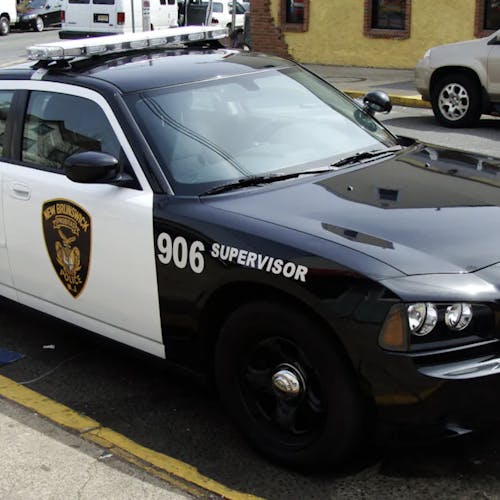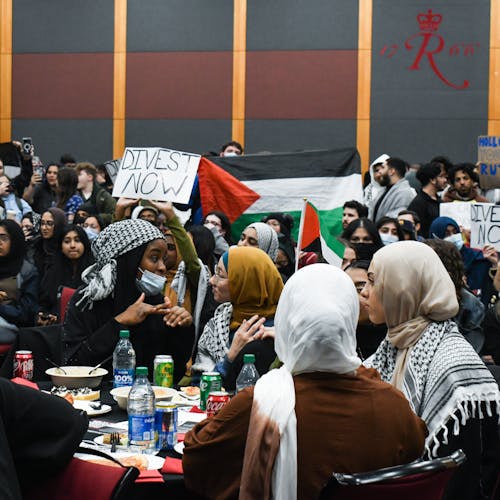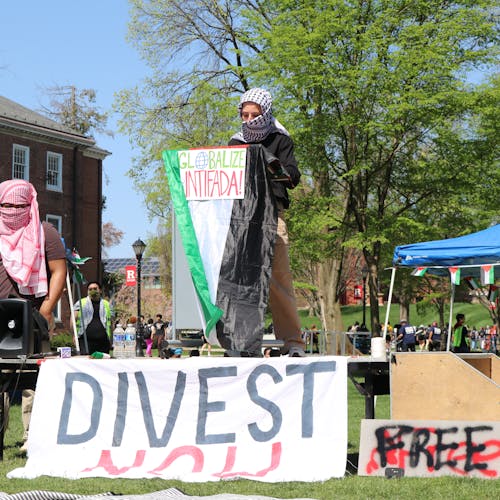Mothers of the Movement speak at Douglass Residential College

On Nov. 14, the mothers of the Black Lives Matter movement walked into Voorhees Chapel to a standing ovation from a crowd of students, faculty, administrators and guests. The 10 women were hosted by Douglass Residential College (DRC) and participated as panelists in Thursday’s social justice teach-in.
Mothers of the Movement is a group of Black women whose children have been killed by gun violence and police brutality. The deaths of their children have led to national outcry from movements like Black Lives Matter.
“One in 1,000 unarmed African American men and boys will be killed by police in our country this year,” said Dr. Elizabeth Gunn, the associate dean of academic programs at DRC. “Today’s event is a special occasion and an educational gathering for civil and dignified conversation.”
Each of the mothers was first asked to share something about their son that was not represented by the media. Many shared the dreams of their sons, ranging from playing college football to working as a corrections officer, as well as their relationships with their family and community.
“Coming up this year, on Nov. 27, will be 20 years since (Gary Hopkins Jr.) was murdered in 1999 by a Prince George’s County (Maryland) police officer,” said Marion Gray-Hopkins, mother of Gary Hopkins Jr. “What you didn’t know about Gary was that he was a brother, the youngest of four, a mentor to his peer group. He loved to write, he was a poet, he was a writer, he was a rapper, or so he liked to think.”
Gunn asked the panelists how they were able to persist through their grief and work toward social justice.
“I would like to give my admiration to the ladies that are sitting on this stage that reached out to me,” said Montye Benjamin, mother of Jayvis Benjamin, who was killed by a police officer in Georgia in 2013. “Everyone here has been constant encouragement. I stayed kind of in my shell for a while, but I realized this issue was bigger than myself as well as my son.”
Kadi Diallo is the mother of Amadou Diallo, an immigrant from Guinea killed by New York Police Department (NYPD) officers in 1999. She said she had to travel across the world when her tragedy hit her and said she was motivated to make sure her son had not died in vain.
Eric Garner was also killed by an NYPD officer. His mother, Gwen Carr, said she was in a dark place after the death of her son and did not even want to get out of bed. Being a religious person, she said she started praying and found her motivation.
“The media will demonize your child, the police department will criminalize your child. So they assassinate your child twice. First they murder him, then they assassinate him in the papers. But I decided to get up and turn my mourning into a movement and my sorrow into a strategy,” she said.
Gray-Hopkins co-founded the Coalition for Concerned Mothers to help mentor those who are experiencing similar tragedies.
“None of us want to be a part of this club that we’re a part of, but it gives me motivation,” she said. “By mentoring someone else, I’m really mentoring myself and it’s helping me and healing me.”
“I had to go from bitter to better,” said Greta Carter-Willis, mother of 14-year-old police brutality victim Kevin Cooper. “As we continue to come in space such as this, we can share our stories, then you can go forth and become doctors and lawyers and judges. You can change it and turn around and make this a better society for all of us living together, loving on one another.”
“We’re here today, I’m here today, because there is a fight within me to ensure that the justice system is changed. And it’s up to you to take a stand when you see injustice. Don’t just turn away from it, but fight to ensure that injustice is made right. I am going to continue to fight all the days of my life,” said Wanda Johnson, mother of Oscar Grant, who was shot by a police officer in Oakland in 2009.
Several questions were taken from the audience asking the panelists about systemic changes that made them hopeful, the right age to start talking to children of color about police brutality and racism and what students could do to support the movement.
Johnson encouraged students to vote and serve as jurors, while Gray-Hopkins said it was important to have difficult conversations about race. She said that white students especially could use their white privilege to lift the voices of others. Others mentioned legislation that would be introduced in Congress, such as the Peace Act.
Benjamin said she spoke to her children about racism and police brutality when they were 7 years old.
“You don’t have to look for trouble, trouble will find you,” Benjamin said she told her kids.
A number of the mothers also said that they had family members and close friends in law enforcement.
“We are not anti-police,” Carr said. “We are anti-brutality.”
Lesley McSpadden, the mother of Michael Brown, had remained quiet during the event and an audience member passed a note up to the stage which Gunn read aloud.
“Lesley McSpadden. We love you, we see you. Your presence here is very powerful,” she said.
Today, many of the mothers are retired, many spend time with their families in their free time and all continue to fight for their sons.



